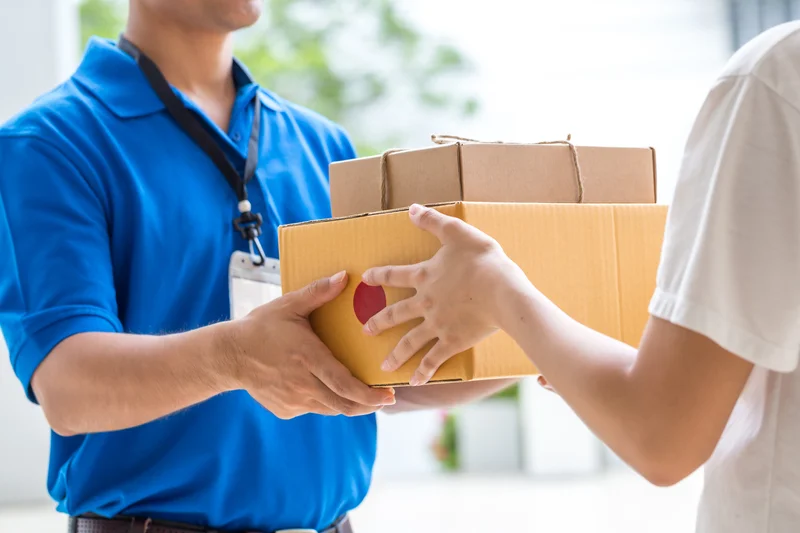Article Directory
So I just ordered a sad, lukewarm burrito to my apartment. It arrived in a crinkled paper bag, delivered by a guy on a bike who looked like he’d rather be anywhere else on Earth. I didn’t have to talk to anyone, I didn’t have to put on shoes, and I didn’t have to experience a single moment of friction. The app called it "magic."
Let's be real. It wasn't magic. It was a sterile, soulless transaction that left me feeling emptier than before I ate. And this, right here, is the con we’ve all bought into. We’ve been sold a future of ultimate convenience, a utopia where every desire is a tap away. But the burrito is a Trojan horse. We wheeled it into our cities, mesmerized by the promise of easy tacos and `pizza delivery`, and now, in the dead of night, the real cost is pouring out.
The Convenience Grift
Remember restaurants? Those places with sticky floors and loud music and waiters who might remember your name? They’re becoming relics. The fact sheet says nearly three out of four restaurant orders are now eaten somewhere else. Think about that. The primary function of a restaurant—serving people in a shared space—is becoming a niche side-hustle to its main gig as a logistics hub for `DoorDash` and `Uber Eats`.
One restaurateur nailed it: “Delivery saved us during the pandemic. Now they are killing us.” It’s a brilliant business model. No, 'brilliant' isn't right—it's parasitic. The apps present themselves as partners, but they’re more like digital cuckoos, laying their eggs in someone else’s nest and slowly pushing the original occupants out. They extract exorbitant fees, dictate menus (dishes that can survive a 20-minute bike ride), and turn chefs into assembly-line workers. A restaurant that doesn't serve people in its own dining room ain't really a restaurant. It's a fulfillment center with better lighting.
This is what one writer, Derek Thompson, called “convenience maximalism.” It’s the relentless, VC-fueled drive to make everything faster and easier, no matter the collateral damage. We were promised a seamless experience, and for the user, it is. But for everyone else...

The whole system is built on a lie. The lie is that this is progress. That hollowing out our local communities, turning chefs into ghost kitchen drones, and eliminating human interaction is somehow an "innovation." But what are we innovating toward? A world where we never have to leave the couch and the only person we see all day is the blurry image of a delivery driver in a doorbell camera? What kind of pathetic future is that?
The Bodies Behind the Algorithm
If you think the cost is just a few empty tables and some soggy fries, you haven’t been paying attention. The "convenience" is subsidized by real human beings, and the bill is coming due in flesh and blood.
In Belfast, a delivery driver in his 30s gets pulled from his car and headbutted in the face (Belfast: Delivery driver in hospital following Dublin Road assault). He was just sitting there, waiting for the next order to pop up on his phone, a cog in the great `food delivery` machine. His injuries weren't life-threatening, the report says. I guess that's supposed to be a comfort? How many other stories like this don't make the news? How many drivers are risking their safety every single night so we can get ramen delivered at 11 PM?
Then you’ve got the corporate-level brutality. An `Amazon delivery` contractor in Washington, JARDE LLC, gets its contract terminated out of the blue. Just like that, 110 `delivery jobs` are gone (One delivery contractor from Amazon's Bremerton warehouse closing, affecting 110 jobs). The owner, Joseph Otte, said it was "unforeseen and unexpected." Offcourse it was. To Amazon, JARDE LLC was just a line item on a spreadsheet that stopped making sense. Those 110 people weren't employees; they were liabilities, conveniently outsourced so Amazon could wash its hands of them when the numbers didn't add up.
This is the army inside the Trojan horse. It’s the physical violence, the economic precarity, the quiet desperation that powers our effortless world. Every time you tap "Place Order," you’re spinning a roulette wheel for someone else’s life—their safety, their job, their sanity. And the house always wins. We get our cheap, fast `grocery delivery`, and they get to pretend the human cost doesn't exist. But it does. It's in the hospital in Belfast and the unemployment line in Washington. We just choose not to look.
We Ordered This Mess
Here’s the part no one wants to admit. We can’t just blame the tech bros in Silicon Valley for this. We let the horse through the gates. We downloaded the apps. We chose the path of least resistance, again and again, until it became the only path we know. We traded community for convenience, connection for speed. We optimized our lives for efficiency and ended up with a profound sense of isolation. That empty feeling I got after my sad burrito? That's the taste of the future we're building. And the worst part is, we can’t even say we weren’t warned. We just decided we’d rather have the burrito.
